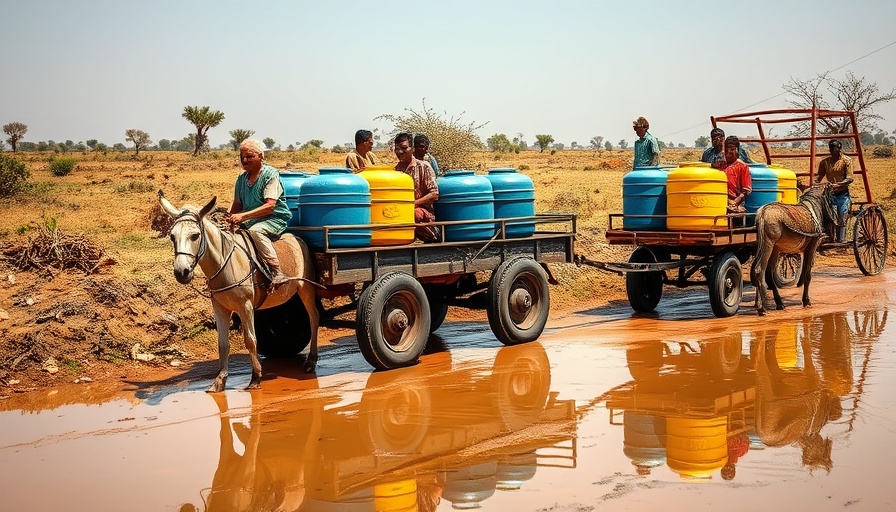
A Deadly Cholera Outbreak Grips Sudan: What You Need to Know
The recent cholera outbreak in Sudan has turned alarming, with more than 172 lives lost and over 2,500 infected in just the past week. The epicenter of this crisis is in and around the capital, Khartoum, as health officials scramble to address the dire situation.
According to Joyce Bakker, coordinator for Doctors Without Borders in Sudan, the spike began in mid-May as numerous patients reported to treatment centers. Sadly, many are arriving too late for assistance, reflecting a health care system that is being quickly overwhelmed. “We don’t know the true scale of the outbreak,” Bakker noted, emphasizing the urgent need for additional water, sanitation, and hygiene programs.
The Role of Water Resources in Health Crises
This cholera outbreak is deeply connected to Sudan’s ongoing humanitarian challenges. The Health Minister, Haitham Ibrahim, pointed out that the rise in cases correlates with many people returning to Khartoum after fleeing violence, effectively straining the city's already limited water supplies.
As cholera is transmitted through contaminated water and food, the lack of adequate sanitation and hydration makes combating this disease a significant challenge in the region. Advocacy for better water management and infrastructure is not just a health issue, but also a moral imperative, as inadequate access to clean water directly contributes to public health crises.
Global Health Perspectives: The Importance of Collective Action
This cholera outbreak occurs within the context of global health. The World Health Organization identifies cholera as a fast-spreading disease that can lead to death in hours if untreated. To manage such outbreaks, international cooperation and support are paramount.
Organizations like Doctors Without Borders are instrumental; however, they require backing from international donors and health authorities to implement large-scale solutions. Collective efforts to provide clean water, hygiene programs, and medical assistance are critical to altering the trajectory of this outbreak.
Your Role in Promoting Health and Wellness
While it may seem overwhelming, your actions can help advocate for those affected. Supporting global health initiatives and organizations working in crisis zones can significantly impact the lives of those suffering from diseases like cholera. Being informed about health crises enables individuals to take action—be it through donations, spreading awareness, or advocating for policies that prioritize health and well-being.
In a world increasingly aware of the interconnectedness of health, understanding the causes and impacts of outbreaks like the one in Sudan can empower citizens and encourage positive changes both locally and globally.
 Add Row
Add Row  Add
Add 




 Add Row
Add Row  Add
Add 

Write A Comment